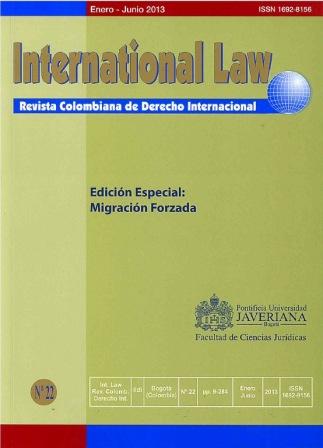Free Circulation of People in the European Union: Third State Citizens as its Beneficiaries
##plugins.themes.bootstrap3.article.details##
One of the greatest challenges of the European Union in the following years will be the correct regulation and control of migratory fluxes with the EU as their destination. In this sense, the entrance and movement of non-Community citizens and their access to the different rights established by community norms constitute a particular preoccupation for the legislator. Controlling the entrance of third state citizens by using norms such as the Schengen acquis, regulating types of visas, establishing residence models and their beneficiaries, and acknowledging certain fundamental rights, like the right to family life, would solve many questions regarding the right to free circulation of non-Community citizens. Nevertheless, it is clear that a lot remains to be done in this field, for in a changing society such as ours, in the middle of an economic crisis, the factors that determine the work market, a key element in the displacement of people from one state to another, is bound to be variable and unpredictable and requires a constant updating of new forms of regulation to match the existing realities. The present paper analyses the current situation of Community freedom, by observing both the norms that regulate extreme cases and the jurisprudence that determines its interpretation and evolution.
European union, family life, population movement, migration pattern, European Union, Free Circulation, Non-Community Citizens, right to FamilyUnión Europea, vida familiar, movimiento de la población, modelos de migración, libre circulación, nacionales extracomunitarios, derecho a la familia


